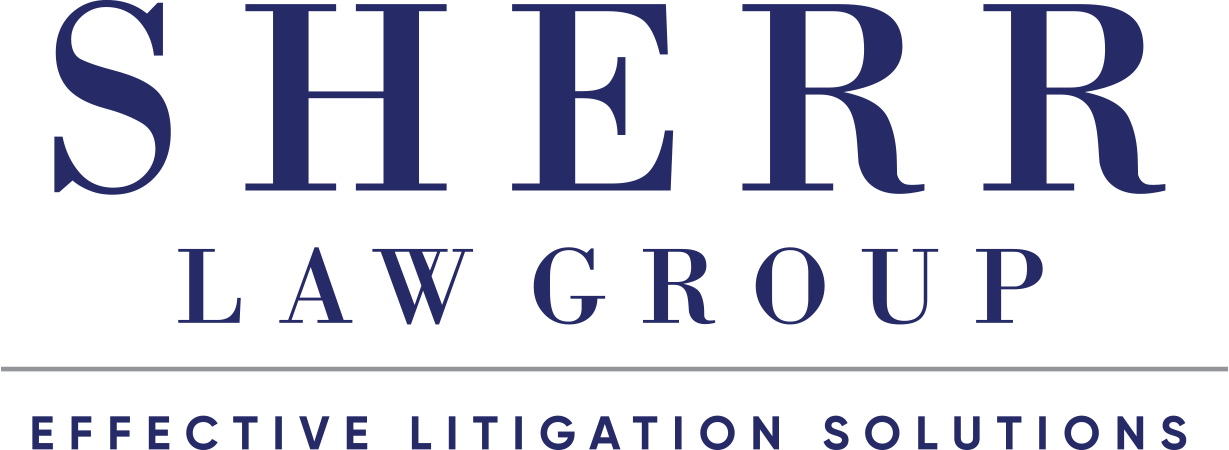For law students, internships offer invaluable opportunities to gain hands-on experience, learn from seasoned professionals, and clarify their career goals. For Nikita Shetty, a second-year law student at Drexel Kline School of Law, her summer internship at Sherr Law Group provided all of this and more. With a background in mathematics and a passion for advocacy, Nikita’s journey to law school and her time at Sherr Law Group were shaped by resilience, independence, and a desire to contribute to her community.
In this interview, Nikita reflects on her experiences at Sherr Law Group, the challenges she faced, and how the supportive environment there helped her grow both professionally and personally. From writing briefs to observing arbitrations, her summer was filled with moments of learning and mentorship. Join us as Nikita shares insights from her time at Sherr Law Group and how it has influenced her career path moving forward.
Could you start by telling us a bit about your background, both personally and educationally, and what led you to pursue an internship with Sherr Law Group?
My name is Nikita Shetty, and I’m currently a second-year law student at Drexel Kline School of Law. My educational background is actually in mathematics. I earned a bachelor’s degree in math and pursued some graduate-level coursework before realizing that it wasn’t the right path for me.
After that, I became an adjunct professor, teaching math at three different colleges in New York City. I was also working part-time jobs to support myself while living in the city. This helped fund my law school education, which I had always dreamed of pursuing.
I’ve always wanted to be a lawyer, even from a young age. I actually wrote about it in my personal statement when I applied to law school. I was born in India, raised in Singapore, and moved to the United States when I was 18. Growing up in a convent boarding school in India during my parents’ turbulent divorce shaped me. The environment was very rigid, and I always questioned it. I remember one time I wanted to dance, and a nun told me it was time to study. When I pushed back, I was punished, but I continued to stand up for myself.
I come from a family of strong women who have persevered despite societal expectations. In Indian and Asian cultures, women often face pressure to conform to traditional roles, but the women in my life—my mom, aunts, and grandmother—defied those norms. They worked hard, supported their families, and taught me to be an advocate for myself and others.
When I moved to the U.S., I wasn’t sure where to begin. Political science wasn’t an option because I had no background in American politics or social studies. So, I stuck with math because it came naturally to me. At 29, after saving enough to fund my education, I decided to pursue law school.
As for how I ended up at Sherr Law Group, I learned about the diversity program through the Montgomery Bar Association via Drexel’s Career Strategies Office. One of my advisors suggested it, and I applied. I was drawn to the King of Prussia area because, coming from Singapore—a place where safety and community are strong values—this area made me feel a sense of security and connection.
What ultimately led me to choose Sherr Law Group was Mr. Tony Sherr’s introduction. He spoke about being a respected member of the community and a “shepherd” of the people in Montgomery County. That really resonated with me. Having moved around so much in my life, my way of adapting to new places is to immerse myself in the community, and I saw that same value in Mr. Sherr.
Although I still don’t know exactly what area of law I want to specialize in, I felt that Sherr Law Group was the right place for me because they shared my commitment to community and advocacy.
That’s fascinating. I’d love to hear more about what appealed to you about the King of Prussia area and how Tony’s philosophy on involvement tied into that.
The first thing that appealed to me about the King of Prussia area was how safe it felt. That sense of security was important to me. The second thing was the greenery—it just seemed like a great place to live. It’s a community where, even though people may have their legal issues, they seem to genuinely care for one another.
I remember driving through Montgomery County and seeing a handmade sign that read, “Children live here, please drive below 25 MPH.” It wasn’t an official sign, but it showed that someone in the community cared enough to put it up. That really struck me.
The third thing that drew me in was the Montgomery Bar Association (MBA). The diversity program, which is run by Nancy Walsh, was my introduction to the MBA. She’s a literal ray of sunshine—so warm and welcoming. She made me feel at home right from the start, always asking how my day was or how I was doing.
The MBA had so many opportunities for professional development—writing workshops, webinars on various topics like intellectual property, and even a mentor program. Through that program, I was connected with two mentors who helped me secure my internship for my 2L year. At the closing ceremony, attorneys were inviting me to reach out, making themselves approachable and supportive.
Now, about Mr. Sherr—one of the most impressive things about him was that he made time for me, even though I was just an intern. For example, I was trying out for the alternate dispute resolution team at my school, specifically the arbitration team. To try out, I had to prepare an eight-minute opening statement from scratch. When I told Mr. Sherr and his daughter, Stephanie, who also works at the firm, they immediately offered to help.
They told me to draft the opening statement in two days and present it to them the following day. Mr. Sherr, who’s on an arbitration panel, wanted to see what I could do. I presented it to him, and he gave me invaluable feedback—what to say, what not to say, where to place emphasis. It meant a lot because arbitration isn’t something we learn in our 1L year, so his coaching was essential.
He spent an entire hour with me, building my confidence. I’ll never forget when he said, “Go kill it, kid. With that confidence, you’re going to get in.” And sure enough, the next morning, after the tryout, he came in and asked, “You got it, right?” I told him I did, and he just smiled and said, “That’s what I thought.”
Big law firms don’t usually foster that kind of mentorship, but Mr. Sherr and his daughter do. Stephanie is so down-to-earth—she’s quirky and easy to talk to, always encouraging me to ask questions. She would say, “Let’s get real, let’s talk about this case,” or “Come with me to the courthouse, I’ll explain everything.” That level of support made a huge difference for me.
What were your primary responsibilities during your internship at Sherr Law Group?
My responsibilities were split 50-50 between insurance defense and criminal law. The criminal side was mostly because Stephanie Sherr handles criminal law cases—she was a criminal defense attorney before joining Sherr Law Group. The experience was great.
From the moment I walked in, the environment was warm and welcoming. Charlene Healy, the paralegal, would always ask how my day was going, how my family was doing, and really took the time to connect on a personal level. It created a nice, supportive atmosphere right from the start.
As for my work, a lot of it involved brief writing. It was daunting at first because writing a full brief on my own felt overwhelming. To put it in perspective, during 1L, it typically takes an entire semester to write a brief, about four to five months. At Sherr Law Group, I had to write one in a week and a half! It was definitely a challenge, but I had great examples from Mr. and Ms. Sherr to guide me.
The challenge was real, but both Mr. and Ms. Sherr were incredibly understanding. In addition to writing briefs, I worked on direct examination summaries and drafting findings of fact and conclusions of law, which was all new to me. Before this internship, I didn’t fully understand the court processes—like how cases move through the court, how they’re filed, and how they’re docketed. By the end of the summer, I had a much better understanding.
Stephanie Sherr was with me every step of the way. If I didn’t know something, like what findings of fact and conclusions of law were, or if I thought my direct examination summary was too long, she was there to support me and provide guidance.
Beyond that, I also had the opportunity to observe arbitrations, court hearings, and client deposition prep meetings. These experiences gave me a real sense of what I might pursue in the future, and it was eye-opening. The environment at Sherr Law Group is one where learning, asking questions, and genuinely caring are encouraged. It was so refreshing to be in that kind of environment.
How do you feel those experiences contributed to your professional development?
Immensely. I now have a much better understanding of time management and the importance of meeting deadlines. The gravity of what I’ll be pursuing in the future really hit me—every word in a brief matters, and the way I write is crucial. I’ve started my 2L year, and I’m already a better writer because of my experience at Sherr Law Group.
What made the biggest difference was the validation I received. When an attorney you look up to says, “You’ve got it,” there’s no better feeling. That kind of confidence, combined with the practical skills I learned, has given me a strong foundation for pursuing a legal career. It also gave me a sense of responsibility to the people around me and helped me understand the seriousness of what I’m about to pursue.
What were some of the most challenging aspects of your internship?
Definitely the brief writing. Writing a full brief in a week and a half was incredibly daunting, especially because it was on a precedent-setting case, which meant there was no case law to refer to. That made it really challenging.
But whenever I felt stuck or like I hit a roadblock, I could always walk into Ms. Sherr’s or Mr. Sherr’s office. Their doors were always open, and they would stop whatever they were doing to answer my questions. For example, I’d ask Ms. Sherr if I could use legislative history instead of case law to make my argument more convincing, and she’d give me the tools to try it out. She’d tell me, “Go forth, experiment, and if you get stuck, come back, and we’ll figure it out together.”
That kind of environment—where you’re encouraged to learn by doing but also know you have support—helps you overcome any challenge. Whether it’s writing, speaking in front of people, or dealing with clients, it builds your confidence and skills.
You mentioned earlier that the team at Sherr Law Group encouraged you to take on challenges independently. How did that philosophy impact your learning and ability to take on these challenges?
It had a really positive impact on me. I’ve always been an independent learner and an independent person, so I appreciated that I wasn’t forced into a particular mold. From the beginning, I’ve shared that I don’t like being confined to a box. I don’t like when people impose their ways and processes on me. I want to learn, of course—teach me your methods—but don’t spoon-feed me, because that’s not how I learn.
If you tell someone that a color is red, and that’s the only option they know, they’ll never be able to form their own opinions about whether it’s burgundy, maroon, or another shade. They’ll just stick with what you told them. Until someone goes out and explores the possibilities for themselves, they won’t truly learn.
That environment at Sherr Law Group really encouraged me to think for myself. It made me feel okay with making mistakes because that’s part of the learning process. It fostered independence and advocacy. To advocate for others, you have to be willing to challenge norms, and that’s something I take with me.
I’ve learned that it’s okay to make mistakes because I’m not perfect, but I can always improve.
As you reflect on your internship, how has it influenced your career goals going forward, and how do you see yourself applying those lessons in your future career?
The key takeaway for me is that I have what it takes, and that belief was reinforced by the attorneys I aspire to be like. I felt validated in my abilities, which was incredibly important. I also learned that I have to give my best effort, no matter what. For example, anything I drafted had to go through two different hands before it was approved or sent to court. That showed me the level of perfection I need to strive for when advocating for and representing a client. Seeing Mr. Sherr and Ms. Sherr, who have 500 cases on their docket, still take the time to perfect every document and communication made me realize that I should do the same. If they can commit to that level of effort, I should aim for nothing less in my future career.
If you’re interested in an internship with Sherr Law Group, contact us here.



